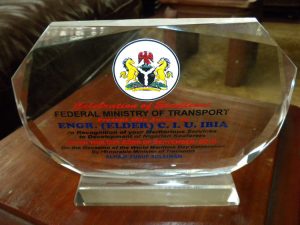Engr C. I. U. Ibia

Highlights of his interview
His career with Nigerian Ports Authority (NPA); the motivation for sea life; how he joined seafaring, the interview; the schools they were sent to, Willesden Technical College; training aboard Elder Dempster ship, Salagar; the combination of seatime and college time, from 1960-1970, to become a chief engineer; how they were seconded to the Nigerian National Shipping Line (NNSL) in 1974; transfer to Nigerline UK; transfer and promotion to Lagos headquarters; colleagues and where they were working in public and private sector; his preparation to be the manager of the 19 new ships’ acquisition; his working relationship with Capt. Ebong and how rivalry was quelled; the near-sabotage at sea of Mv King Jaja, the first all-Nigerian-crewed ship to make an ocean voyage; how the ship was saved from sinking by repair at sea; the party held for them on arrival in Lagos in 1970; problem suspected to have arisen from British workers in NNSL who wanted to forestall full Nigerianization of NNSL; press conference by Polish General Manager to say that Nigerians henceforth would manage the top managers of NNSL; transfer to Liverpool to understudy the expatriates at Liverpool office of Nigerline UK; training at Liverpool; popularity in European shipyards; why Mv King Jaja was a notorious ship; his activities drydocking all ships and working with all shipyards; the reasons why old ships were bought for NNSL; the process of acquiring the 19 ships; promotion as the head of the new buildings and training of relevant new manpower; the politics of the training programme which defeated national interest; the use of Black Star Line staff; his arbitrary retirement along with others by the Buhari junta in 1984; the sinking of the Mv River Gurara; the investigative panel from the Federal Ministry of Transport and his interaction with them; the reasons why they retired him; retirement without right of appeal; the politics and petitions of working with the Ministry of Transport, the Board and management of NNSL; the probe of his bank account in Liverpool; the process of disengaging all the top officers of NNSL; how visiting NNSL officials made demands on the company’s suppliers, chandlers and agents to be defrayed by company finances; the details of charges against him and Mr. Oladitan, the General Manager; interferences of the FMOT in the running of the shipping line; the problem of the shipyard construction of container spaces at 8ft instead of 8ft 8 inches; the award given him after 26 years of retirement; the completion of the Nigerianization programme; comparison of how the company fared under Nigerians versus expatriates; the underhand activities of his predecessor, Engr. Ogundipe, for which he was sacked; the repair of NNSL ships; the in-house politics and perceived corruption which led to the closure of the Nigerline UK office by Alhaji Wushishi, the Minister of State; taking delivery of the 19 ships, the preparations, etc; the problems of running the new ships and NNSL’s fleet; no reason to have liquidated the NNSL; the problem of ships overstaying in the port with visitors feeding on the ships’ stores; the special feasts made for visiting Ministry of Transport officials; the role of overseas agents in the corruptive practices; the salary differences between the sea staff and the shore staff; how Alhaji Mamman Makele, Minister of Steel, denied NNSL cargoes because of the issue of kickback.
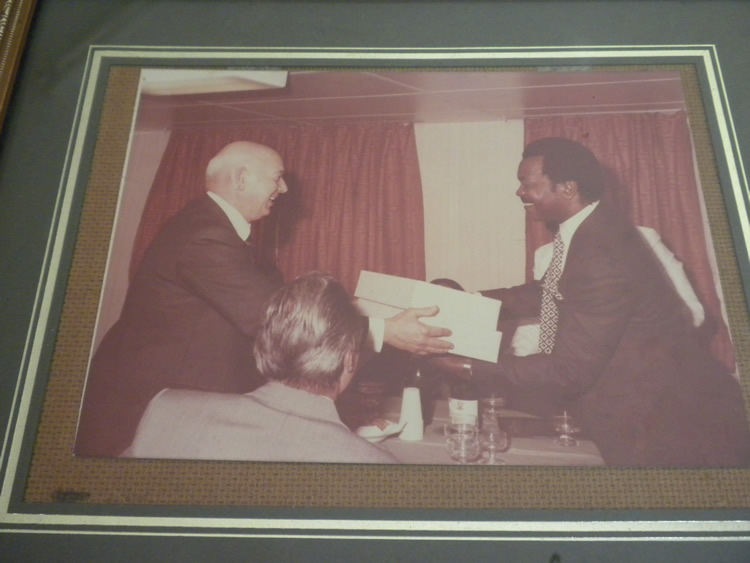
Engr Ibia (standing right) receiving documents on the 19 new ships being constructed in South Korea and Yugoslavia
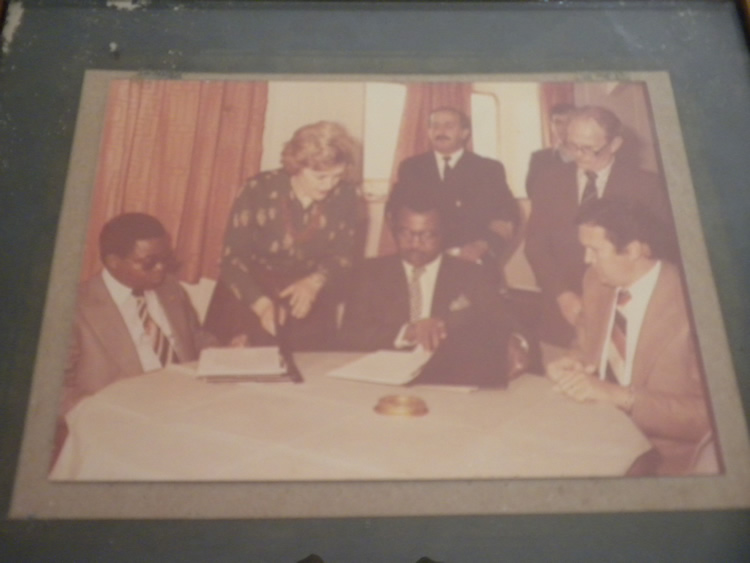
Engr Ibia perusing documents related to the construction of the 19 new ships of the company
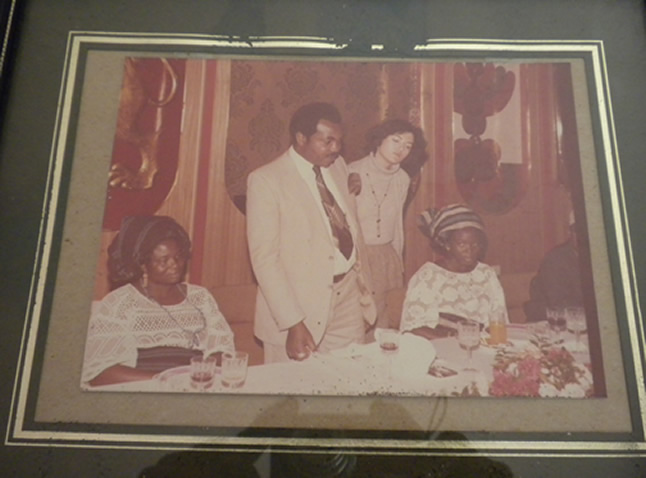
Ibia making a speech
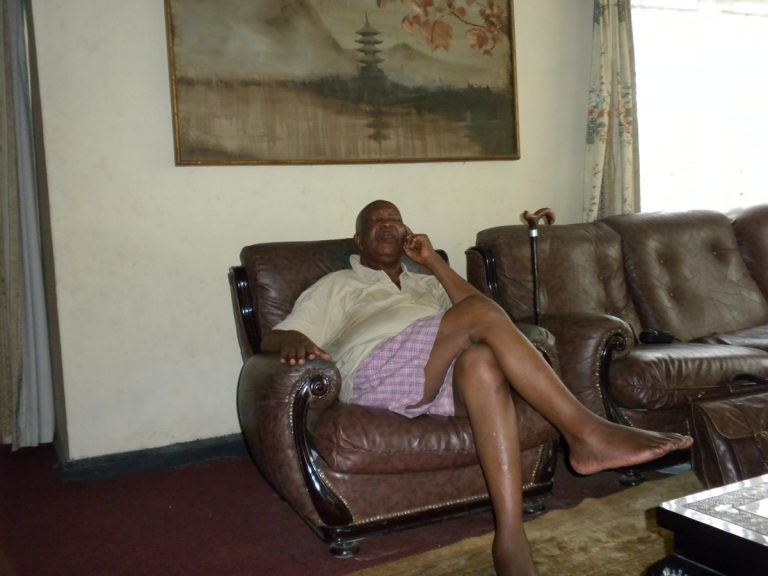
Ibia on retirement
